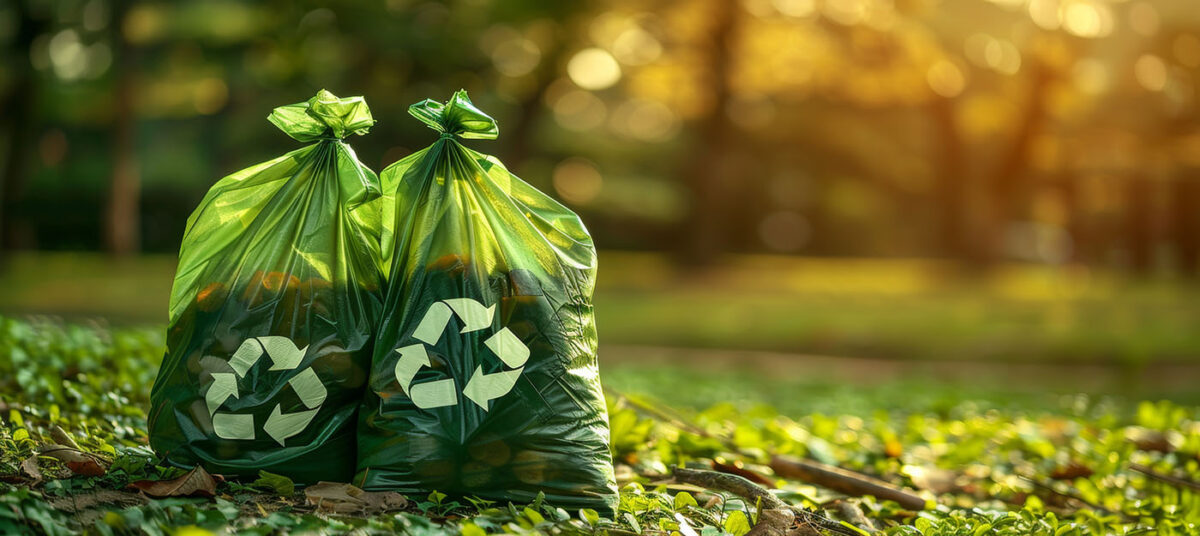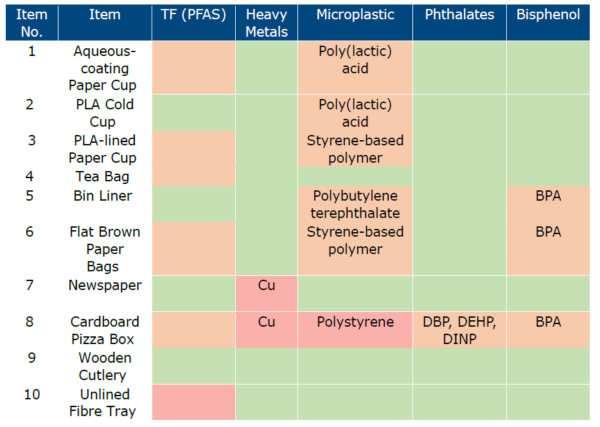Harmful Additives in Compostable Packaging

A recent report by the University of Auckland, commissioned by the Ministry for the Environment, sheds light on the presence and impact of harmful additives in compostable products.
The study made by the University of Auckland examined ten products, including paper cups, tea bags, bin liners, PLA cups and pizza boxes, for the presence of per- and polyfluoroalkyl substances (PFAS), heavy metals, polymers, phthalates, and bisphenols.
You can also read: Does Compostable Packaging Really Disintegrate?
PFAS in Paper-based Products
The findings revealed that the paper products are the most likely to present high PFAS levels. Moreover, six out of the ten products contained detectable levels of PFAS, with an unlined fibre tray showing particularly high levels. This suggests the intentional addition of these persistent and potentially harmful chemicals. Heavy metal analysis indicated that copper levels in the newspaper and pizza box exceeded allowable limits, raising concerns about their impact on soil health. Other metals like lead and chromium were present but within safe levels.
Polymers and Microplastics
Polymer analysis identified the presence of styrene-based polymers and polylactic acid (PLA) in several products. These materials, though intended to be biodegradable, can degrade in natural environments and cause microplastic pollution. The pizza box primarily contained phthalates and bisphenols used as plasticizers, while bisphenol A (BPA) was also found in the bin liner and brown paper bag.
Ecotoxicity tests, which assessed the impact of these products on soil enzyme activities, indicated no acute toxicity. However, the study emphasizes the need for long-term research to understand chronic effects and the fate of these additives during the composting process.
The report highlights several key messages. Establishing baseline levels for additives in compostable products in New Zealand is crucial for setting meaningful standards. Improved regulatory clarity and mandatory certification and labelling following international standards are recommended to address current gaps.

Summary of compostable products analysed. (Green representing no concern to red, which is of concern). Courtesy of Additives in Compostable Products in Aotearoa New Zealand.
Additionally, enhancing consumer education and reducing greenwashing are essential to promote responsible use and disposal of compostable products.
This study provides valuable insights that will inform future policies and research priorities, ensuring the safe and sustainable use of compostable products in New Zealand.
To read the complete study click HERE
